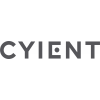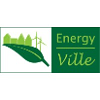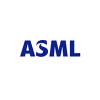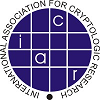Deze vacature is niet beschikbaar in je land.

Laser-printed flexible sustainable thermoelectrics (PhD position)
KU LeuvenLeuven, BE23 dagen geleden
FunctieomschrijvingDegree : Master degree in one of the following fields (or similar) : Materials Science and Engineering, Chemical Engineering, Electrical Engineering, Nanoscience and Nanoengineering, or Applied Physics.- Research experience : Master thesis work and / or experience in materials process, material characterization, electrical instrumentation, or microfabrication.- Interests and research profile : The research topic is 80% experimental and 20% theoretical, and it bridges the fields of physics, materials sciences, electrical, and chemical engineering. Hence, the applicants are required to have an excellent proven background in engineering sciences, with good knowledge of fundamental concepts, and a strong hands-on attitude toward interdisciplinary experimental research. In particular, the candidates must : Enjoy lab work and be keen on inorganic material characterization, with emphasis on electronic materials. Show a strong interest in the link between experiments and fundamental concepts. Be willing to work in close collaboration with the rest of the team and with other departments at KU Leuven (Electrical Engineering, Chemical Engineering, Physics…).- Communication skills : Ability to work both independently and in a team, direct communication style. Fluency in spoken and written English is mandatory! Minimum required : IELTS of 7 (no subscore below 6.5) or TOEFL of 94 (no subscore below 22).- Attitude : Only highly motivated and hard-working candidates willing to work in a fast-paced and dynamic environment will be considered.Thermoelectric (TE) materials can convert waste heat into electrical energy and vice versa; they use electricity to provide active heating / cooling. However, the current fabrication process of TEs is complicated and expensive. Also, current TEs are small and rigid. Finding a way to integrate performing TE materials on flexible devices will open new ways to harvest waste heat from many scenarios, such as the human skin, and replace high-consuming AC devices by enabling thermo-regulating clothing.This project hypothesizes that metal-chalcogenides processed by laser printing on flexible substrate can perform as flexible TE harvesters and coolers for integration into clothing and other wearables.In this project, the PhD candidate is expected to : Produce TE powder alloys, formulate printable slurries / pastes, and develop a sintering and patterning process on a flexible substrate based on selective laser exposure. Familiarize him / herself with the concepts of mobility, charge carrier concentration, Seebeck coefficient, and thermal conductivity, and with the different methods to measure these properties. He / she will be required to master the use of commercial tools to measure these properties and, in some cases, to develop specialized setups. Learn TE device design and merits for both energy harvesting and cooling. Characterize the morphology and elemental composition of the produced powders and films : SEM / EDS, TEM, XRD, ICP-OES, EBSD, etc. Correlate material morphology and composition with final TE material and device performance.This work will be performed at the FMolina-Lopez group, within the “Surface and Interface Engineered Materials” unit at the Department of Materials Engineering of KU Leuven.The project covers competitive salary, medical care, lab and conference expenses for a 4-year program towards the completion of a PhD degree at the Department of Materials Engineering of KU Leuven.KU Leuven is one of the top 50 universities in the world (top 7 in Engineering in the European Union and top 12 in Europe) according to the Times Higher Education ranking 2025. It offers an exciting multi-disciplinary research environment and a broad range of training courses for PhD students.Located in Belgium, at the heart of Europe, and less than 3 hours by train from cities like Paris, London, or Amsterdam, Leuven is a cultural and historical city with a vibrant international student lifestyle.
Maak een vacature-alert aan voor deze zoekopdracht
Position Sustainable • Leuven, BE
Gerelateerde banen
















PhD position on Studying Sub-Neptune Exoplanets in a Laboratory
EarthworksLeuven, Belgium PhD position on Studying Sub-Neptune Exoplanets in a Laboratory .The PhD candidate will be supervised by Prof.Olivier Namur at the Division of Geology (https : / / ees.
Kaustubh Hakim at the Institute o...Laat meer zienLaatst bijgewerkt: 30+ dagen geleden

Entry Analog Mixed Signal Design Engineer
CyientLeuven, Belgium Designs advanced analog and mixed-signal integrated building blocks for RF CMOS, high-speed data communication, data acquisition and low-power & low-voltage applications.
Contributes to the successf...Laat meer zienLaatst bijgewerkt: 30+ dagen geleden
- Gesponsord

Senior RF IC Layout Engineer
IC ResourcesLeuven, Flemish Region, Belgium I am working with a leading technology client seeking a Senior RF IC Layout Engineer to join their team in Belgium.This role focuses on developing next-gen RF technologies.Responsibilities include,...Laat meer zienLaatst bijgewerkt: 30+ dagen geleden

PhD position in Optimization of Balanced Compact Heat Exchangers
EnergyVilleLeuven The Thermal and Fluids Engineering research group headed by Prof.Baelmans focuses on modeling, numerical simulation, and optimization of thermal, fluid and kinetic transport phenomena.The research ...Laat meer zienLaatst bijgewerkt: 30+ dagen geleden

PhD Position in Sensory Signaling and Bladder Disorders at the Laboratory of Ion Channel Research
VIBLeuven, Flanders, Belgium About the lab involved The Laboratory of Ion Channel Research (https : / / voetslab.Thomas Voets at the VIB–KU Leuven Center for Brain & Disease Research, is a dynamic hub investigating the critical r...Laat meer zienLaatst bijgewerkt: 5 dagen geleden

3D Integration Program Director
Allen Recruitment ConsultingLeuven, Flemish Brabant Province, Belgium Location : Leuven, Flemish Brabant Province, Belgium.Our client, a leading telecom solutions provider, is seeking a talented 3D Integration Program Director to join their dynamic R&D team.This is an...Laat meer zienLaatst bijgewerkt: 18 dagen geleden

Principal Scientist Advanced Patterning-Lithography
ASMLLeuven, Belgium, Netherlands ASML is looking for a Principal Scientist for the Technology Development Center (TDC) at IMEC.The Technology Development Center extends ASML’s R&D activities in imaging technology, leveraging deep ...Laat meer zienLaatst bijgewerkt: 30+ dagen geleden
- Gesponsord

MEMS Characterization Engineer - Freelance
ConSol PartnersLeuven, Flemish Region, Belgium MEMS Characterization Engineer.Initial 6 month contract + extensions.Please note that working from home is not possible for this position, as the nature of the tasks involved requires being physica...Laat meer zienLaatst bijgewerkt: 18 dagen geleden

Service Technieker | Snelrolpoorten
ManpowerLeuven Passie voor techniek? Dan ben je bij Manpower Specializations aan het juiste adres! Door onze kennis van de markt, specialisatie en persoonlijke toewijding gaan wij samen met jou op zoek naar een n...Laat meer zienLaatst bijgewerkt: 30+ dagen geleden

Device development engineer
EngibexLeuven, Belgique We are a Belgian engineering consulting firm that assists SMEs and large industrial organizations in bringing their innovation and R&D initiatives to life.
As a senior engineer, you'll lead the desi...Laat meer zienLaatst bijgewerkt: 1 dag geleden

Phd student
IACRCOSIC, KU Leuven COSIC is looking for a motivated researcher who fit into the following profile : PhD candidate to work on Hardware implementations secured against physical attacks.
Job Description : The position is ...Laat meer zienLaatst bijgewerkt: 18 dagen geleden
- Gesponsord

MEMS characterization engineer
Qplox engineeringLeuven, Flemish Region, Belgium Measurement of Mechanical Properties of MEMS Devices via Electrical, Mechanical and Optical Methods.As a MEMS characterization engineer, you will support the development of novel MEMS designs in bo...Laat meer zienLaatst bijgewerkt: 18 dagen geleden

Babysitter gezocht in Leuven - babysitjob Leuven
BabysitsLeuven, Flanders, BE Een babysitter gezocht in Leuven voor 1 kind, babysitten in Leuven.I am attaching PhD student living currently alone in Leuven for the next 6 months.
I work from the hospital 4 times a week.No need ...Laat meer zienLaatst bijgewerkt: 30+ dagen geleden

Global IP Manager GITEC
AB InBevBelgium Leuven At AB InBev, we believe that nothing should stand between exceptionally talented people and a meaningful, fast-paced career.
We're not here to do things as they’ve always been done — we’re here to r...Laat meer zienLaatst bijgewerkt: 15 dagen geleden

Associate Clinical Trial Manager (PhD) - Gastrointestinal
MEDPACELeuven, Belgium Medpace is a full-service clinical contract research organization (CRO).We provide Phase I-IV clinical development services to the biotechnology, pharmaceutical and medical device industries.Our mi...Laat meer zienLaatst bijgewerkt: 18 dagen geleden

PhD Position on multi-messenger gravitational wave lensing, Louvain, Belgium
UNIVERSITAT FRANKFURTLouvain, Belgium The CP3 center hosts research in physics of the Universe and fundamental interactions on the experimental and theoretical fronts.
The UCLouvain GW group is part of the Virgo Collaboration at the Eur...Laat meer zienLaatst bijgewerkt: 18 dagen geleden